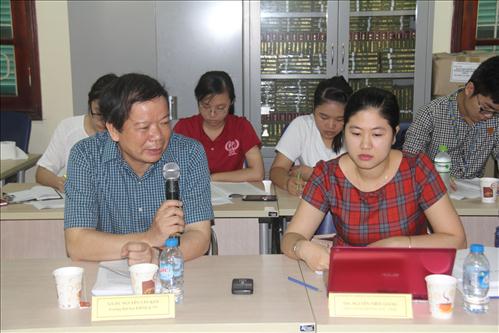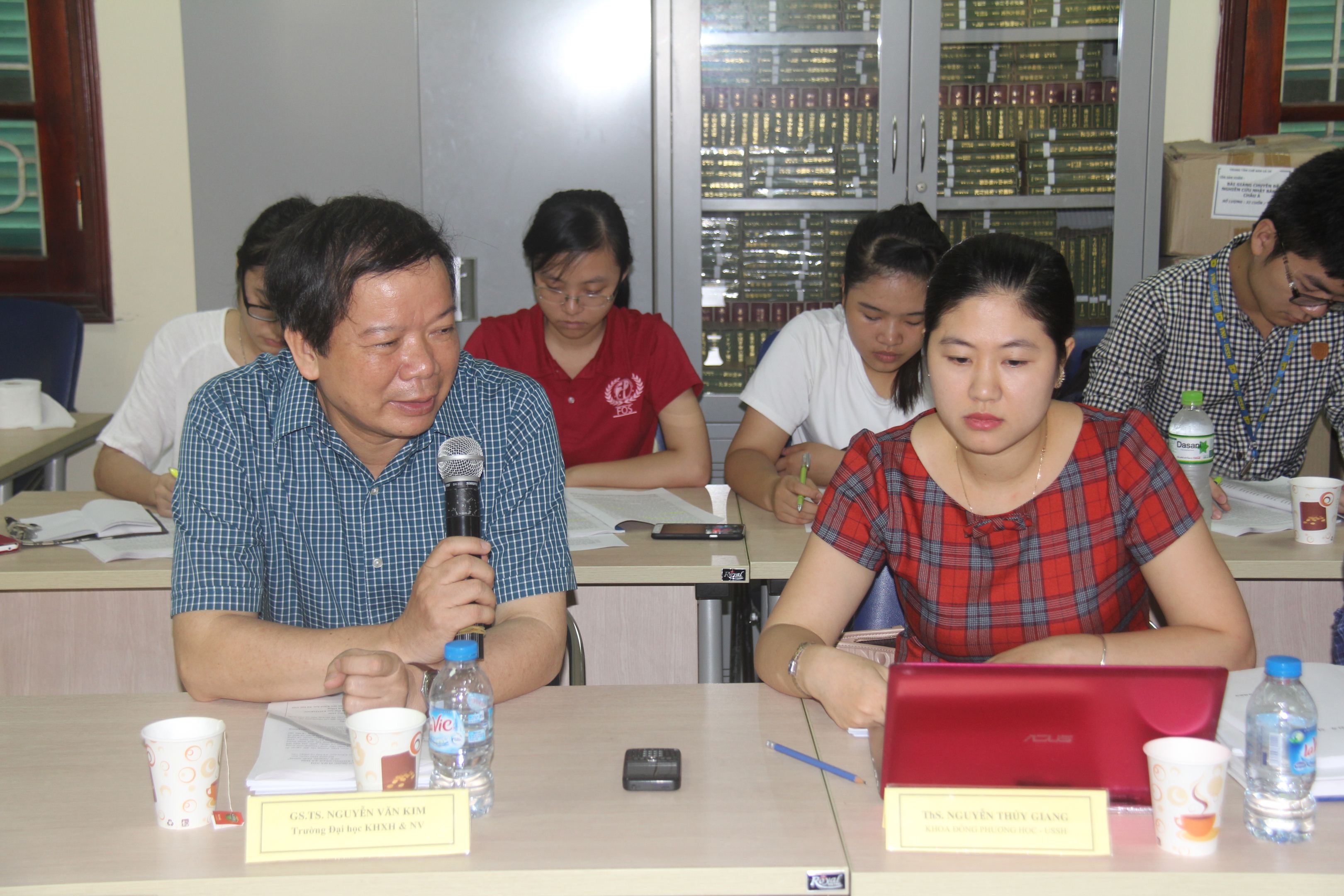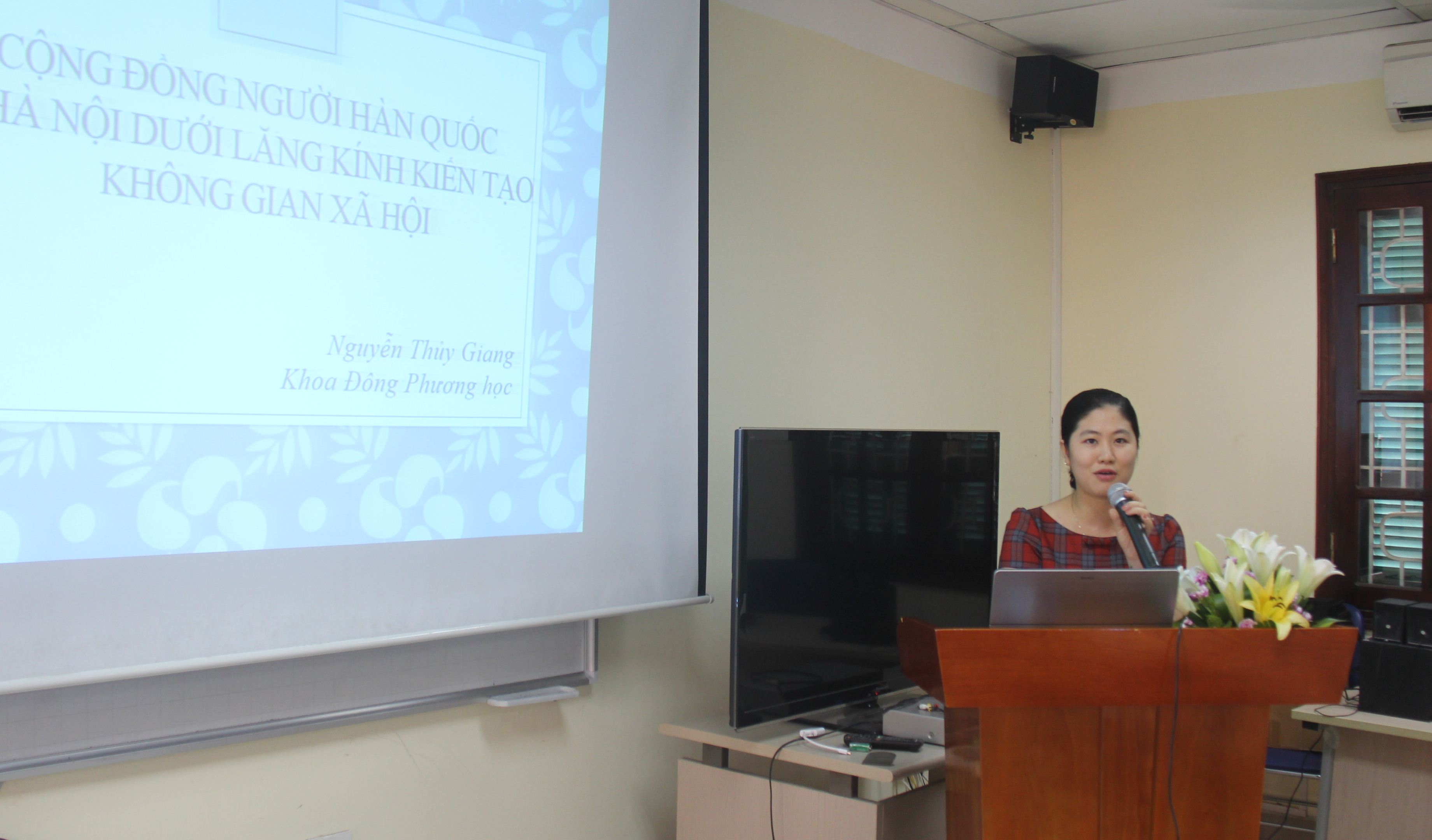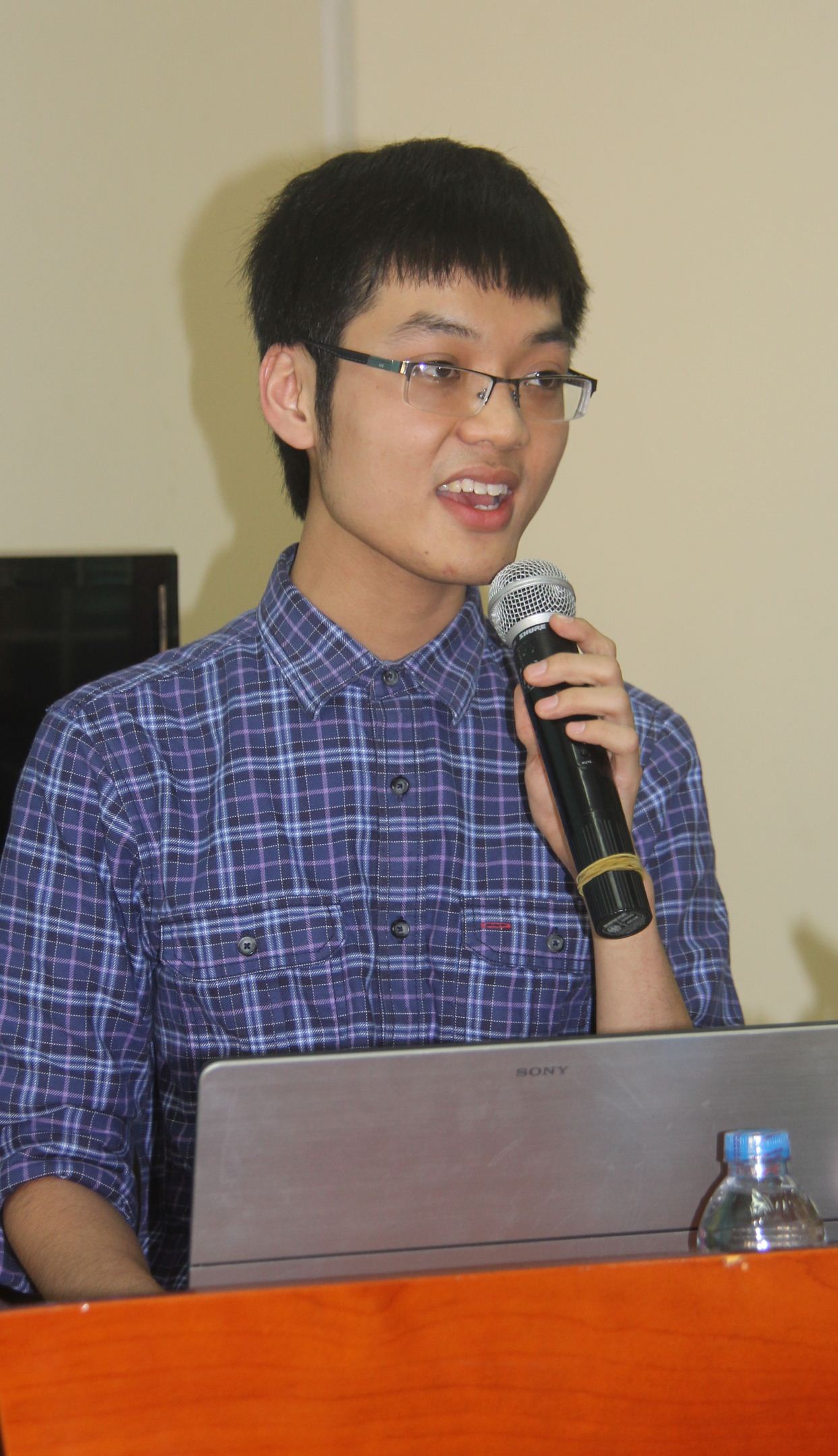
This seminar was one of the scientific activities for young researchers from Faculty of Oriental Studies. It aimed to publish the results of new studies on Japan and Asia, as well as to create a platform for young researchers to learn and exchange experiences in order to improve their research capacity. It was sponsored by Toshiba Fund (Japan).

Prof. Dr Nguyen Van Kim (Vice Rector of USSH) chairs the seminar
At the seminar, the participants listened to two papers: “The Korean community in Hanoi under the perspective of social production of space” by MA. Nguyen Thuy Giang and “Confucian ethical norms on women – case studies of Noi huan by Queen Tu and Gia Huan Ca by Nguyen Trai” by PhD fellow Nguyen Anh Tuan.
Nguyen Thuy Giang’s paper uses the theory of social production of space by Henri Lefebvre to address the Korean community in Hanoi. The paper suggests that, despite having recently settled in Hanoi, the Korean community manages to create its own social space, which can be dissected through materialistic, social and mental dimensions. This theoretical approach serves as a guideline for this research.

Nguyen Anh Tuan’s paper argues that, the literature on Confucian ideas of women has been up to now limited to such concepts as “three obligations and four virtues”, “women’s fate and obedience”, “men above women”, etc…While their substances successfully reflect some aspects of the Confucian ideas of women, they fail to provide a comprehensive account of Confucian ethical norms and ideas. The author thus attempted to dissect a few ancient books, which were said to be “royal monographs” that taught women about ethical norms and behaviors and helped them practice self-cultivation and interpersonal relationships, with the purpose of creating a comprehensive account of women’s life in a typical Confucian society. The author focused on Noi huan by Queen Tu, one of the “four great books about women”, and Gia Huan Ca by Nguyen Trai to clarify the Confucian ethical norms on Chinese and Vietnamese women during the medieval period.

Author: Thanh Hà
Reader Comments
Newer articles
Older articles